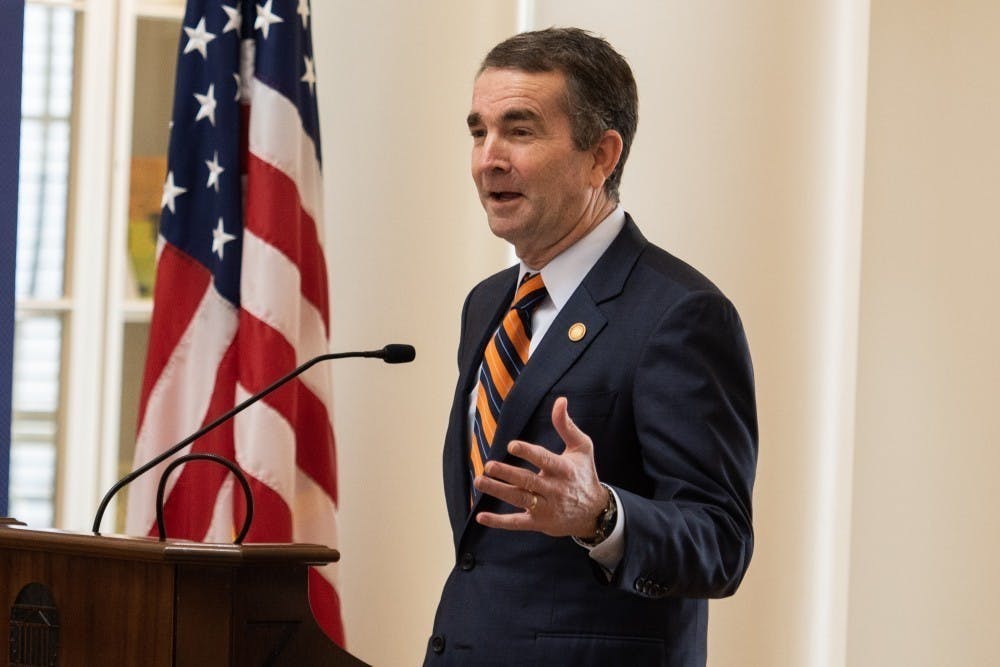Over the past several weeks Governor Ralph Northam has signed a slew of bills that support workers in the Commonwealth, strengthen gun safety, increase access to abortion and tackle several other progressive issues, including evaluating the current health crisis in Virginia and its prisons. In response to the ongoing coronavirus pandemic, Gov. Northam proposed an amendment to the state budget that would authorize the release of nearly 2,000 of the state’s 30,000 prisoners. The amendment would grant early release only to those who have a year or less remaining on their sentences, exhibited good behavior during their time served and would not pose a threat to the public. While this plan is still pending approval at the General Assembly’s upcoming April 22 session, Northam and his administration have already begun working on the logistics of the release program, as it is expected to be approved.
Since inmates are usually released under a re-entry program that includes ensuring they have adequate housing to return to and a 90-day supply of medication, it is expected that the release of inmates under the new initiative would include similar stipulations. However, with the number of confirmed cases of the coronavirus continuing to increase and the economy expected to remain closed until June 10 or later, Gov. Northam and the Virginia Department of Corrections need to further support released inmates. Normal release guidelines will not be sufficient due to the pandemic and the economic crisis it has caused.
While visitation and volunteer activities have been suspended in all correctional facilities until further notice, the spread of the coronavirus in VDOC facilities has grown substantially, with the first confirmed cases among inmates being in the past few weeks. That number has increased to 80 to date — including 46 inmates and 34 staff members — and raises concerns about VDOC’s ability to adequately handle and prevent deadly outbreaks with prisoners living in such close quarters. This factor alone bolsters consideration for releasing prisoners into an ideally safer environment from Virginia’s dozens of state prison and jail facilities, given they meet specific qualifications. However, living outside of prisons would not be safer without state aid.
Not only would prisoners be released into a nationwide pandemic, but they would also have to face the reality of an unstable job market, the possibility of unstable or unsafe housing, living with sick or exposed family members and not being able to support themselves due to a lack of income. With an overwhelmed welfare system and an outrageous amount of red tape preventing ex-offenders from retaining benefits, their ability to financially support themselves in life outside of prison is questionable during the pandemic. The Virginia Employment Commission recommends that any prisoner who is anticipating a need for benefits should begin applying within 120 days prior to their release. However, this is nearly impossible in light of the ongoing public health crisis in the Commonwealth. Further, several other avenues for support may also remain unavailable to released prisoners. They cannot qualify for unemployment benefits as they have been incarcerated without employment. Additionally, it is unclear whether released prisoners can qualify for government stimulus checks. While changing these guidelines may not be practical at the moment, the Virginia government must create an additional aid program that would provide support during such an unprecedented circumstance.
The need for additional support becomes even more apparent when considering the number of released prisoners may grow in coming months. The American Civil Liberties Union of Virginia has criticized Gov. Northam’s proposed release plan for being too narrow. Claire Gastañga, the chapter’s executive director, stated that Northam could invoke his power to grant clemency and avoid the possibility that the General Assembly will shut down this initiative, stating that Northam is “punting responsibility to the legislature, leaving people exposed in dangerous conditions for longer than necessary.” She goes on to ask, “How many more people will be infected or die as he waits for the legislature to act?” Gastañga raises interesting points, as the first inmate in Virginia died from COVID-19 complications April 14. She was serving a nine year sentence at the Virginia Correctional Center for Women in Goochland and was expected to be released in 2023. She was one of the twelve inmates who had tested positive in the facility, four of which are hospitalized.
With the possibility that these numbers will only continue to grow, releasing prisoners out of concern for their safety and risk of exposure to COVID-19 is an admirable effort by Gov. Northam to prevent deadly outbreaks in an already overwhelmed prison system. However, these efforts may mean nothing if ex-offenders are released into unsafe environments without a safety net to support and protect themselves from the coronavirus. Ultimately, it is clear that Gov. Northam and his administration must consider these unprecedented circumstances in future decisions. The administration must recognize the need for an expansion of who is released, as well as an increase in support offered to released inmates until the economic ramifications of the pandemic subside.
The Cavalier Daily Editorial Board is composed of the Executive Editor, the Editor-in-Chief, the two Opinion Editors and their Senior Associate. The board can be reached at eb@avalierdaily.com.






